Scientist-led conferences at Harvard, Stanford and MIT
-
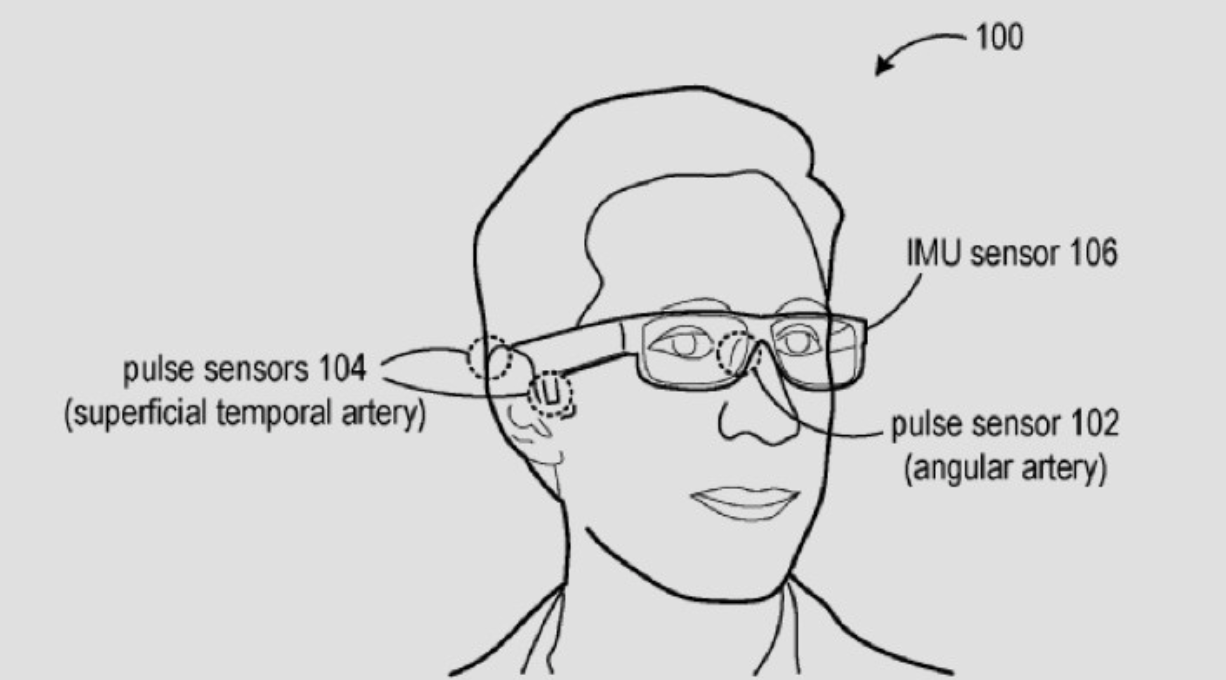
Continuous blood pressure monitoring glasses
Microsoft’s Glabella glasses, developed by Christian Holz and Edward Wang, will have integrated optical sensors that take pulse wave readings from three areas around the face, according to their recently granted patent. Blood pressure is calculated by measuring the time between when blood is ejected from the heart and reaches the face. The researchers believe that…
-
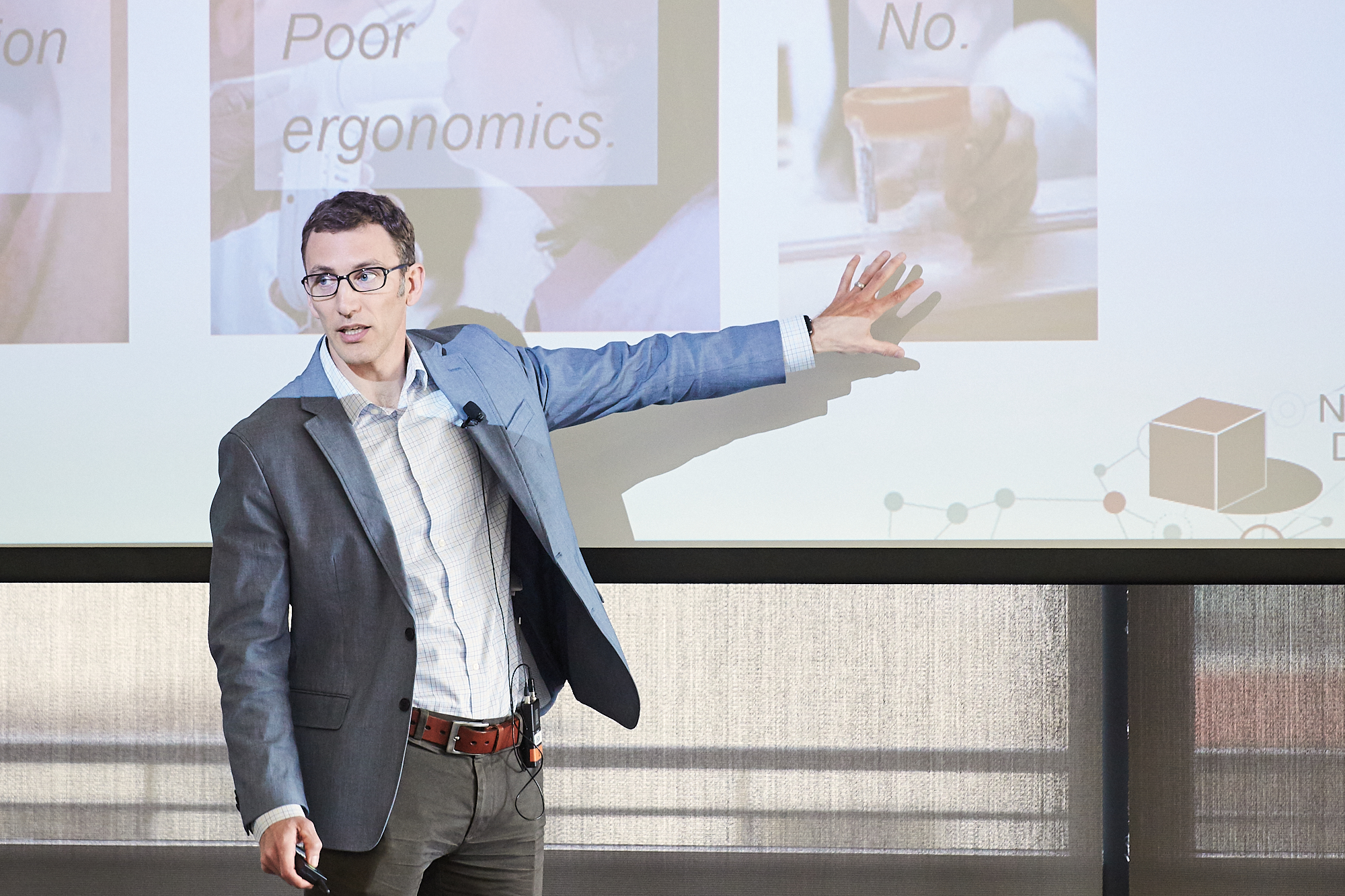
Jason Heikenfeld on sweat-based biometric monitoring | ApplySci @ Stanford
University of Cincinnati and Eccrine Systems‘ Jason Heikenfeld discussed sweat-based biometric monitoring at ApplySci’s recent Wearable Tech + Digital Health + Neurotech conference at Stanford: Join ApplySci at the 9th Wearable Tech + Digital Health + Neurotech Boston conference on September 24, 2018 at the MIT Media Lab. Speakers include: Rudy Tanzi – Mary Lou Jepsen – George…
-
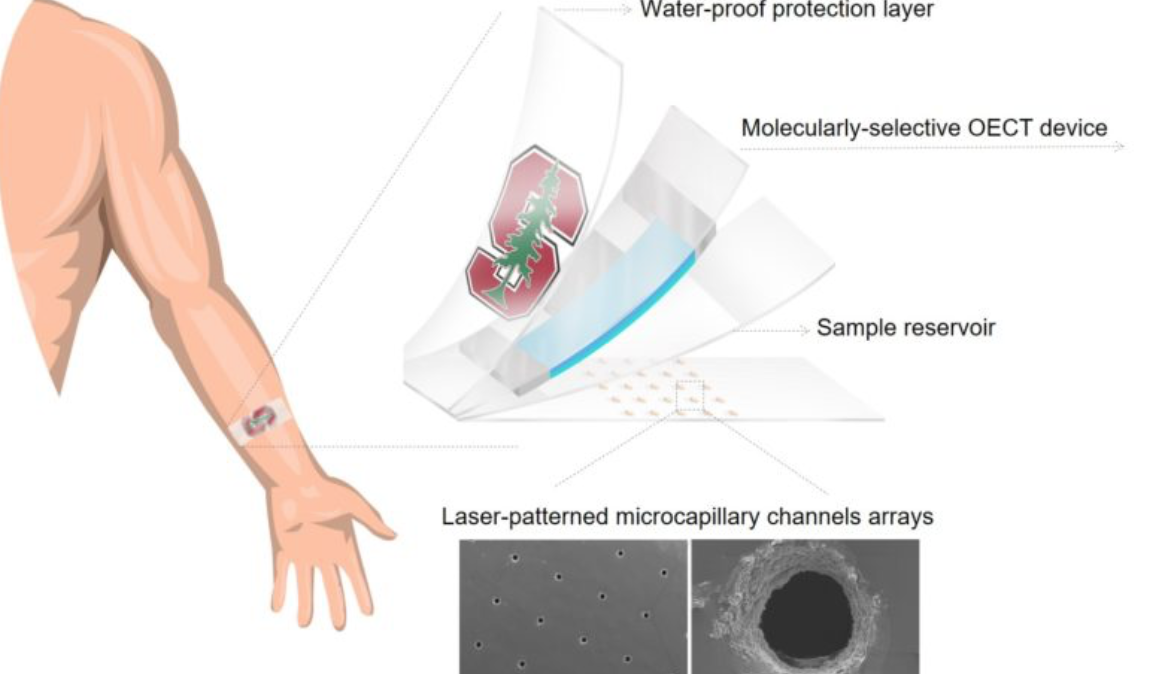
Wearable sweat sensor measures cortisol levels
Stanford’s Alberto Salleo has created a patch that continuously monitors cortisol levels in sweat. Potential uses include sports performance measurement, early disease detection, adrenal and pituitary gland monitoring, and evaluating the emotional state of young or non verbal patients. Cortisol influences emotional stress, blood pressure, metabolism, immune response and and memory formation. The stretchy, rectangular…
-
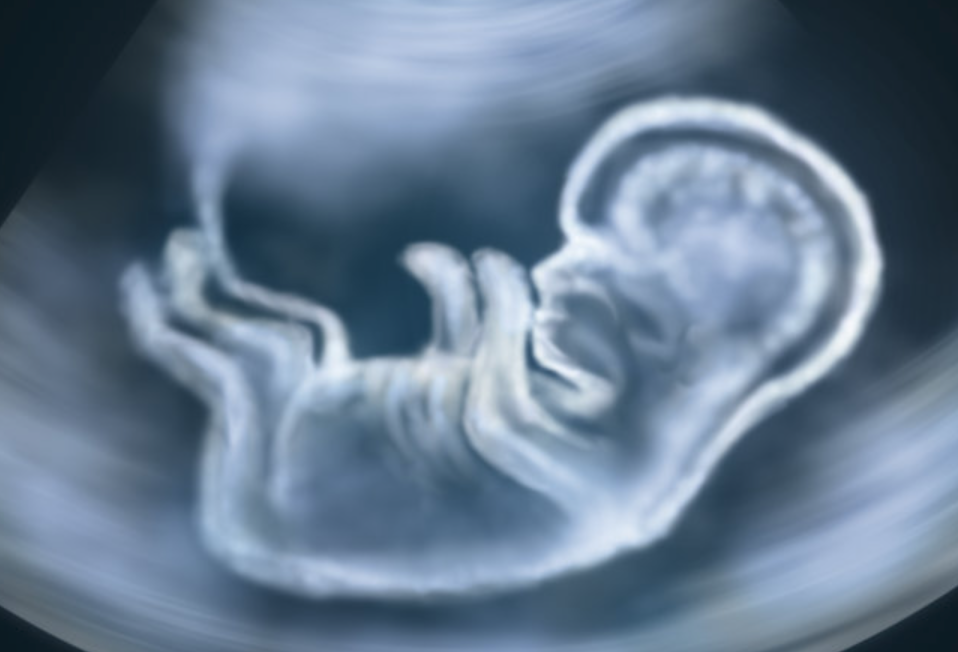
Wearable acoustic sensors track fetal cardiac activity, skeletal development
Acoustic sensors are increasingly used in monitoring fetal health. Imperial College’s Niamh Nowlan is using low cost, non-transmitting accelerometers and acoustic sensors to continuously track fetal movement to understand skeletal development. Acoustic sensors enable discrimination between the movement of the fetus and mother. Israel’s Nuvo Group is continuously monitoring fetal cardiac activity using acoustic sensors and ECG…
-
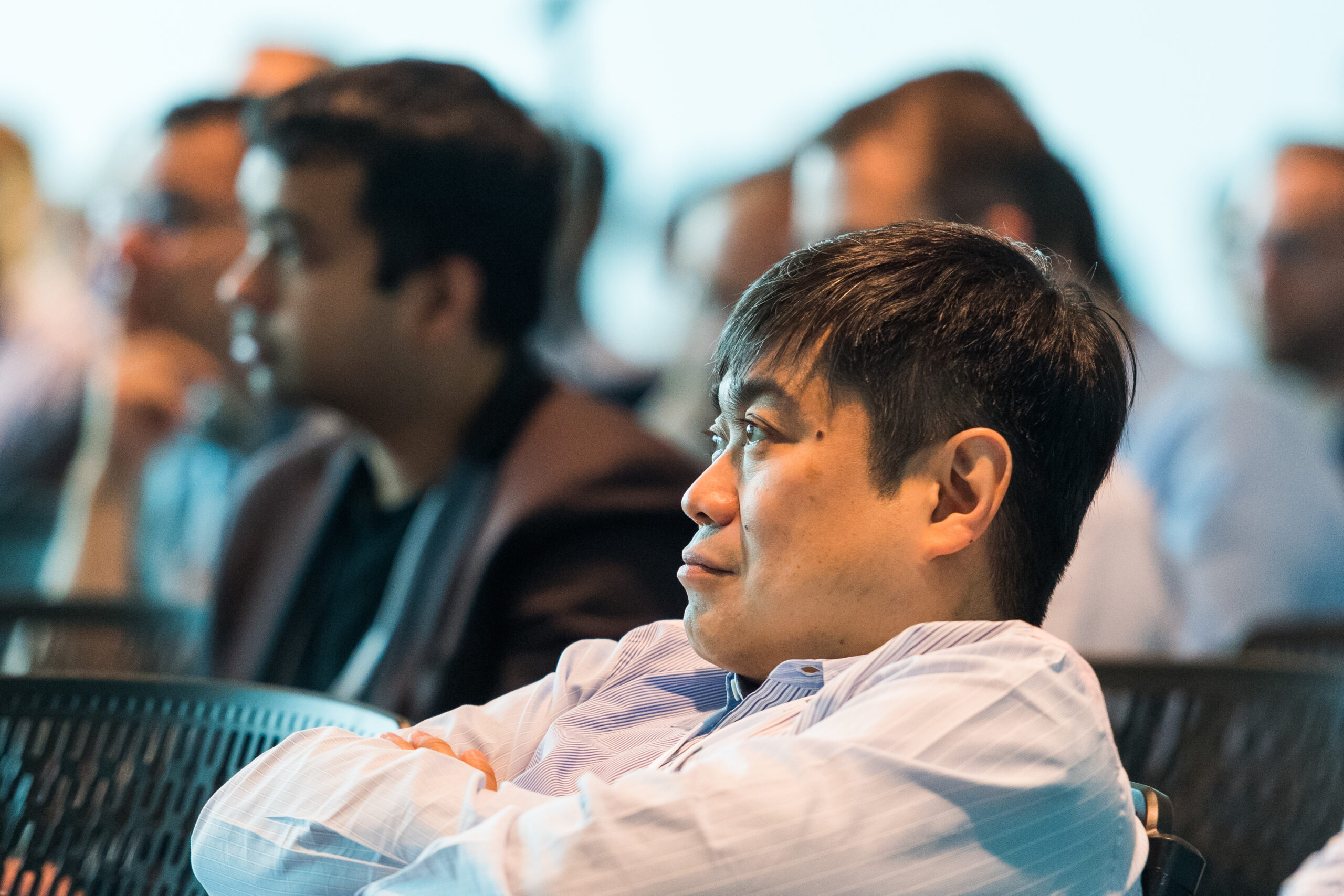
Joi Ito on health: an antidisciplinary system of systems | ApplySci @ MIT
Joi Ito discussed health as an antidisciplinary system of systems at ApplySci’s last Wearable Tech + Digital Health + Neurotech conference at MIT: Join ApplySci at the 9th Wearable Tech + Digital Health + Neurotech Boston conference on September 24, 2018 at the MIT Media Lab. Speakers include: Rudy Tanzi – Mary Lou Jepsen – George Church…
-
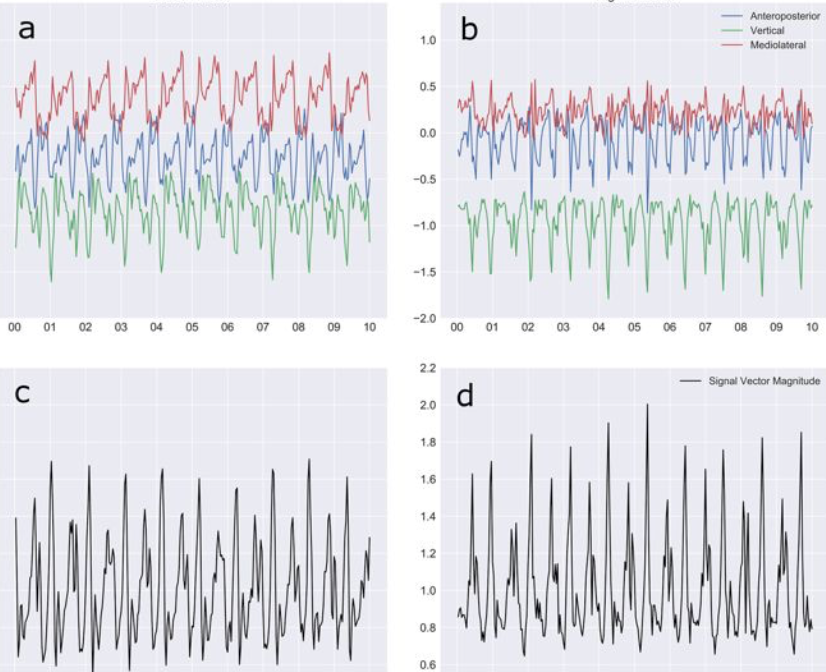
Gait sensor predicts senior falls
University of Illinois professors Bruce Schatz and David Buchner have developed a system to predict senior fall risk using motion sensors that measure walking patterns. 67 women over 60 were tested on walking ability, detailed past annual falls, and wore an accelerometer for one week. The analysis of device data and reported history enabled the…
-
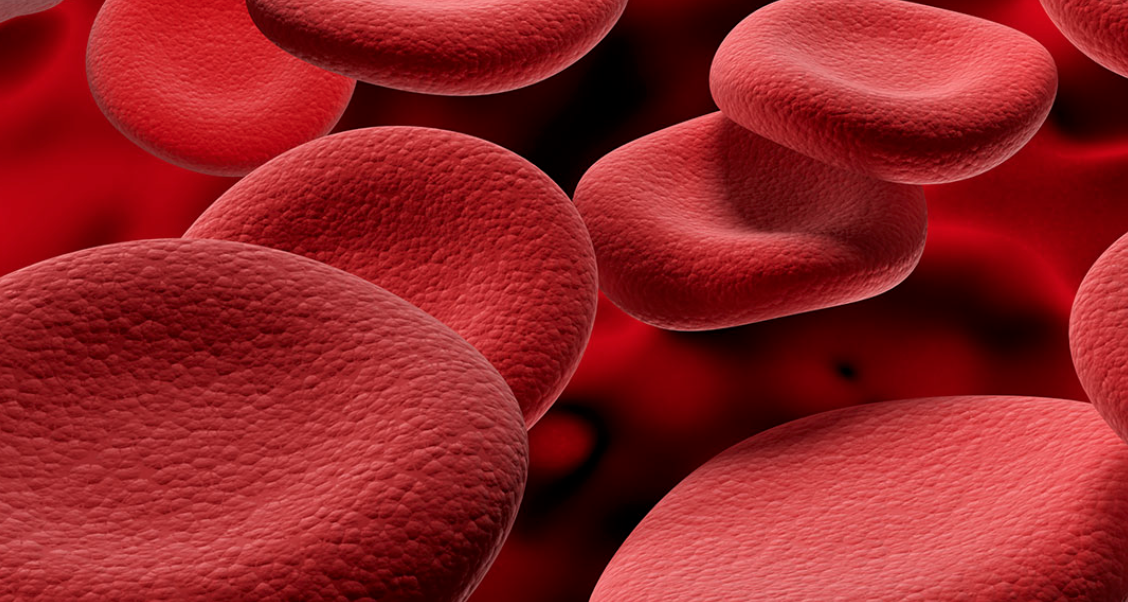
Sensor assesses blood clotting in 30 minutes
ClotChip assesses blood clotting 95 times faster than current methods, with a single single drop of blood, using miniaturized dielectric spectroscopy. A finger-prick sample is taken from heart arrhythmia, pulmonary embolism, post surgery, or hemophilia patients, to analyze clotting abilities in the ER or at home. Results are received in 30 minutes. Caregivers currently cannot quickly assess if…
-
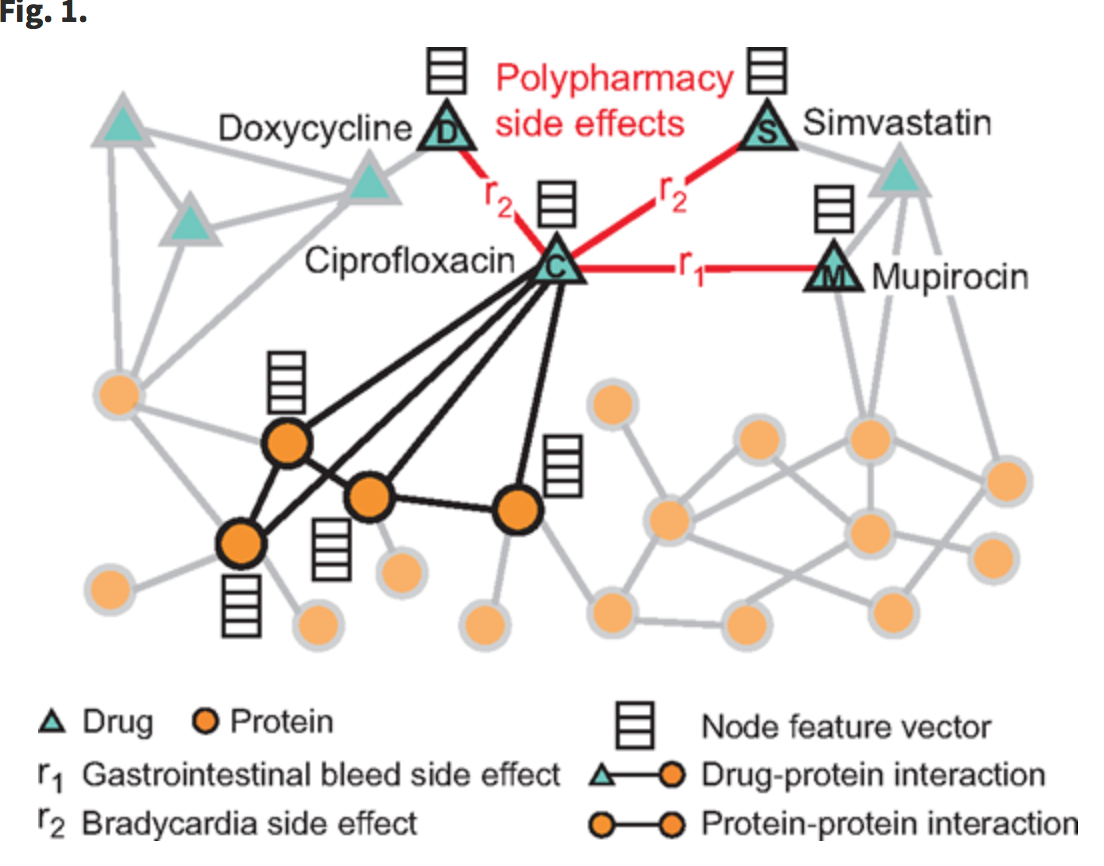
AI predicts drug combination complications
Stanford’s Monica Agrawal, Jure Leskovec and Marinka Zitnik used AI to study the body’s underlying cellular machinery and predict side effects of drug combinations. There are about 1,000 known side effects and 5,000 drugs on the market, making nearly 125 billion possible side effects between all possible pairs of drugs. The team created a network describing…
-
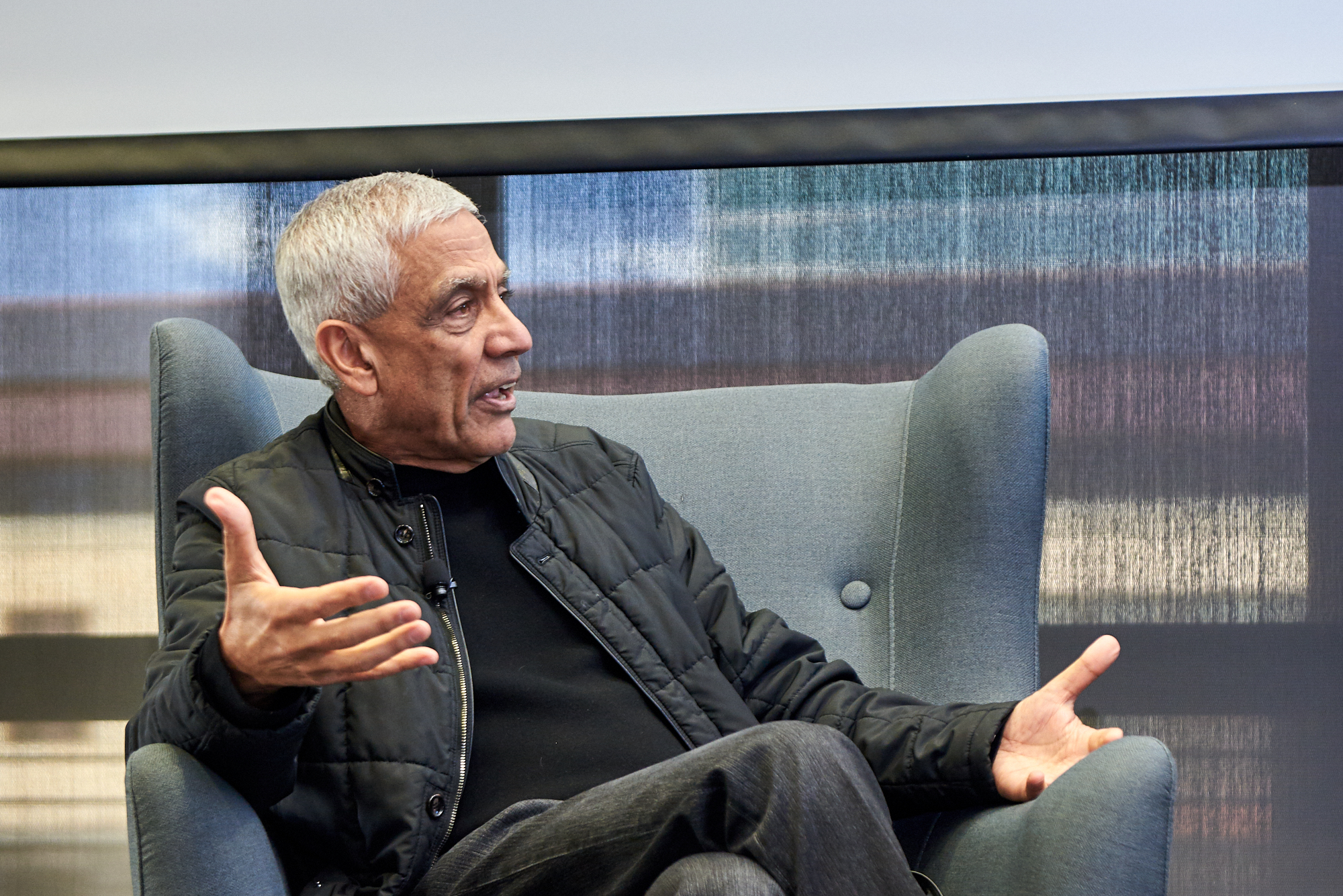
Vinod Khosla on AI in healthcare | ApplySci @ Stanford
Vinod Khosla discussed AI at ApplySci’s recent Wearable Tech + Digital Health + Neurotech conference at Stanford; Join ApplySci at the 9th Wearable Tech + Digital Health + Neurotech Boston conference on September 24, 2018 at the MIT Media Lab. Speakers include: Rudy Tanzi – Mary Lou Jepsen – George Church – Roz Picard – Nathan Intrator…
-
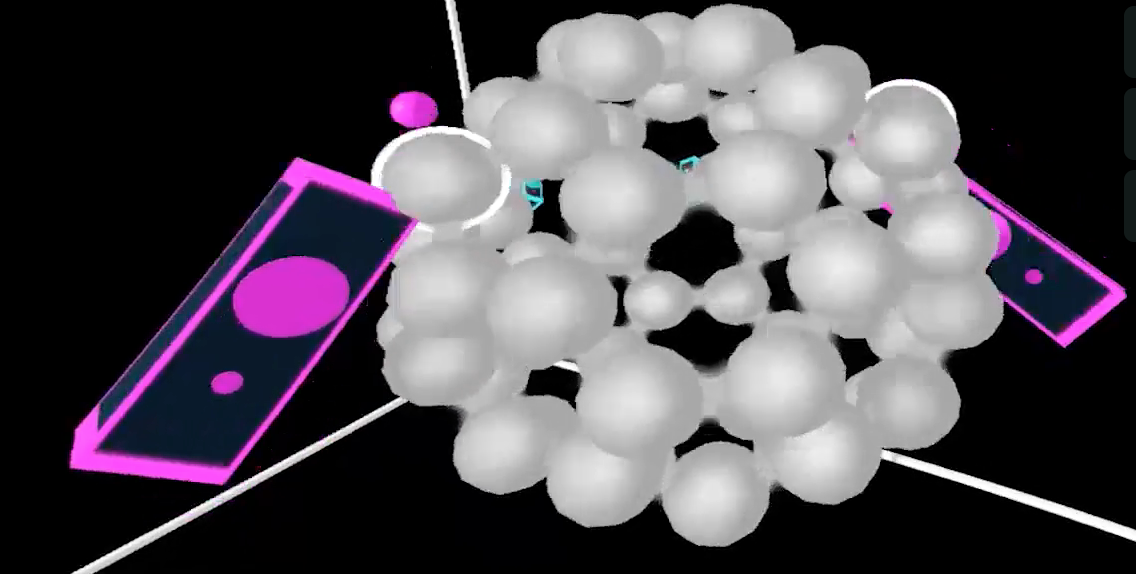
VR-enhanced molecular simulations
University of Bristol researchers, Oracle and Interactive Scientific have used Oracle’s cloud infrastructure to combine real-time molecular simulations with VR, enabling them to “touch” molecules as they move — highlighting the potential of VR in seeing and manipulating complex 3D structures. The technology could change how drugs are designed, and transform the teaching of chemical…
-
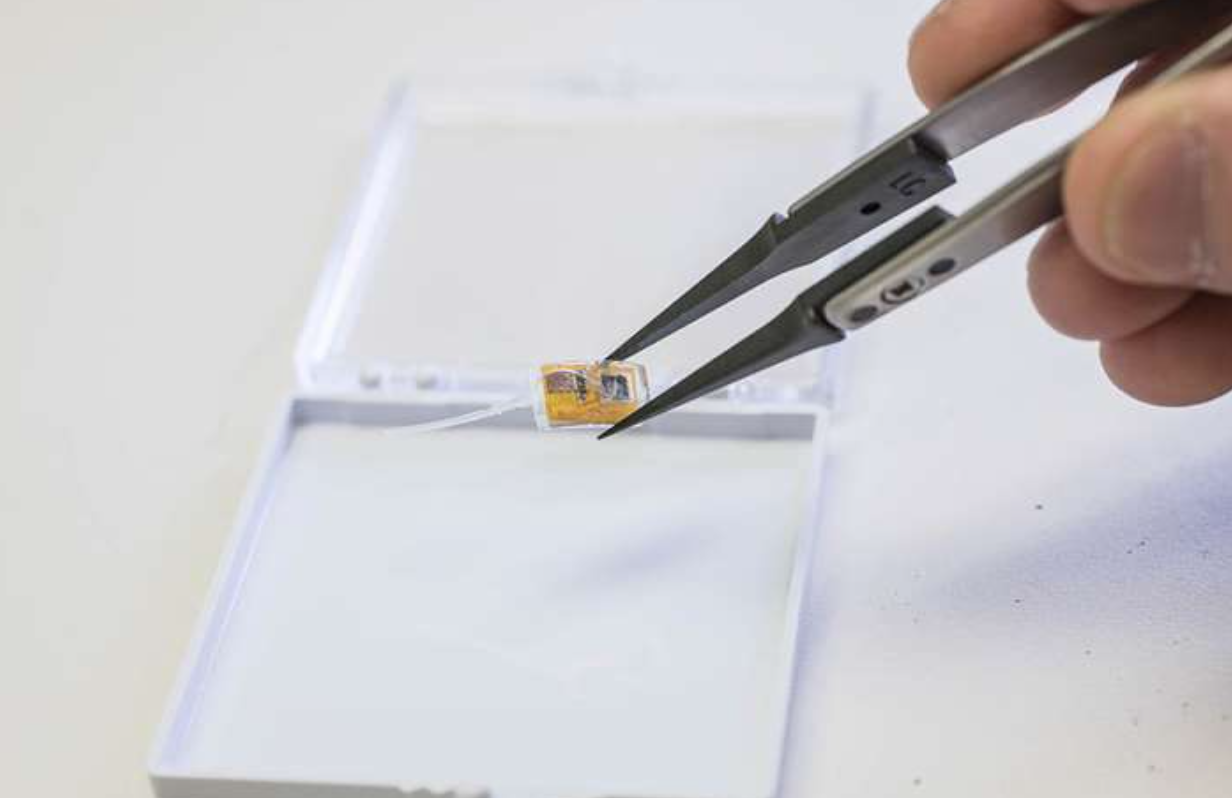
Eye implant measures pressure, releases fluid, in glaucoma
Caltech’s Azita Emami, Aubrey Shapero, Abhinav Agarwal and colleagues have developed a miniaturized, fully wireless, highly-sensitive, implantable, continuous pressure sensor that can remain in the human eye for four years. The goal is early detection and treatment of glaucoma progression. Current tonometer measurement, which requires anesthesia, only measures pressure during an appointment, and can miss…
-
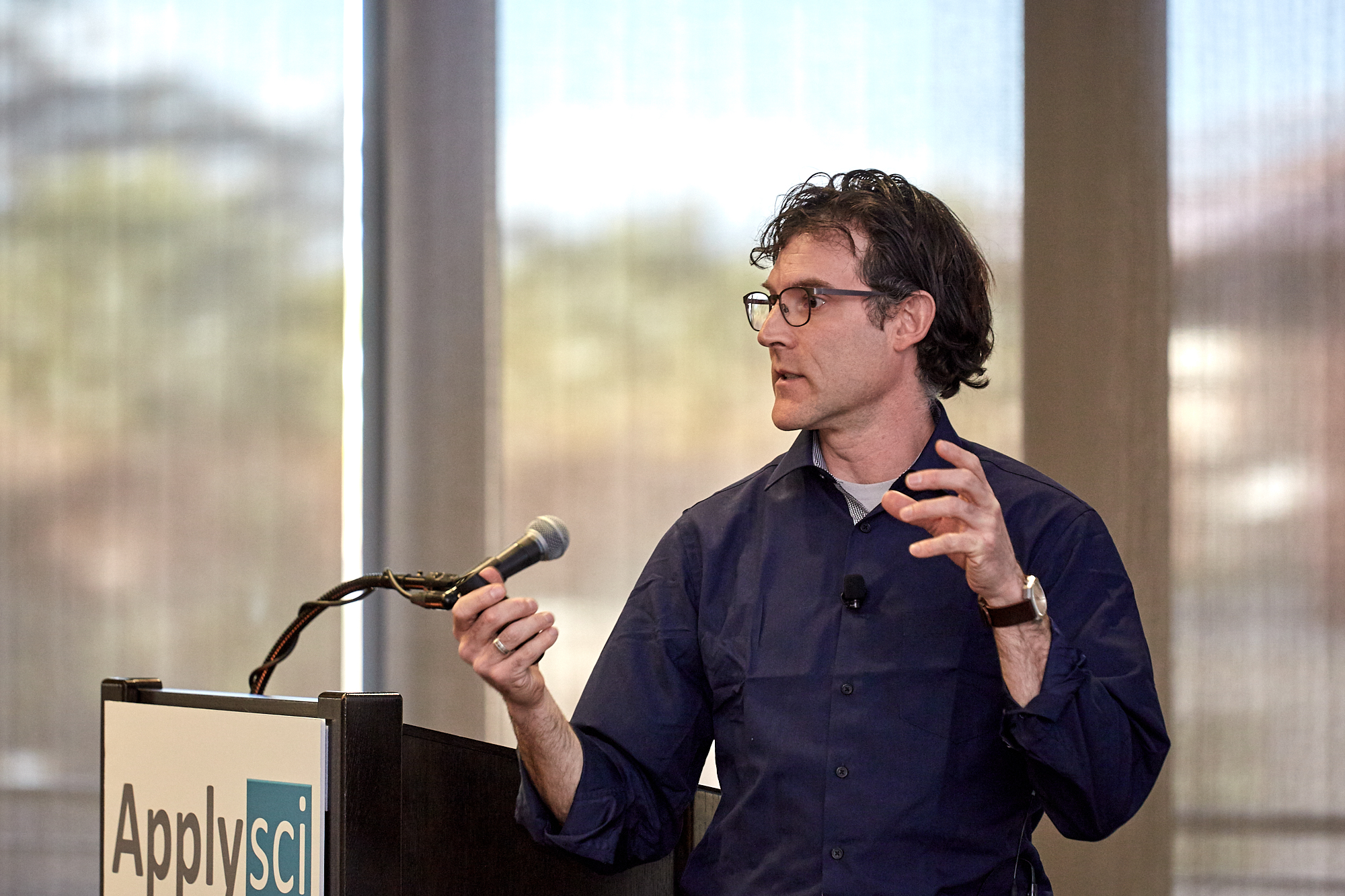
David Axelrod: VR in healthcare & the Stanford Virtual Heart | ApplySci @ Stanford
David Axelrod discussed VR-based learning in healthcare, and the Stanford Virtual Heart, at ApplySci’s recent Wearable Tech + Digital Health + Neurotech conference at Stanford; Join ApplySci at the 9th Wearable Tech + Digital Health + Neurotech Boston conference on September 24, 2018 at the MIT Media Lab. Speakers include: Rudy Tanzi – Mary Lou Jepsen…
Got any book recommendations?